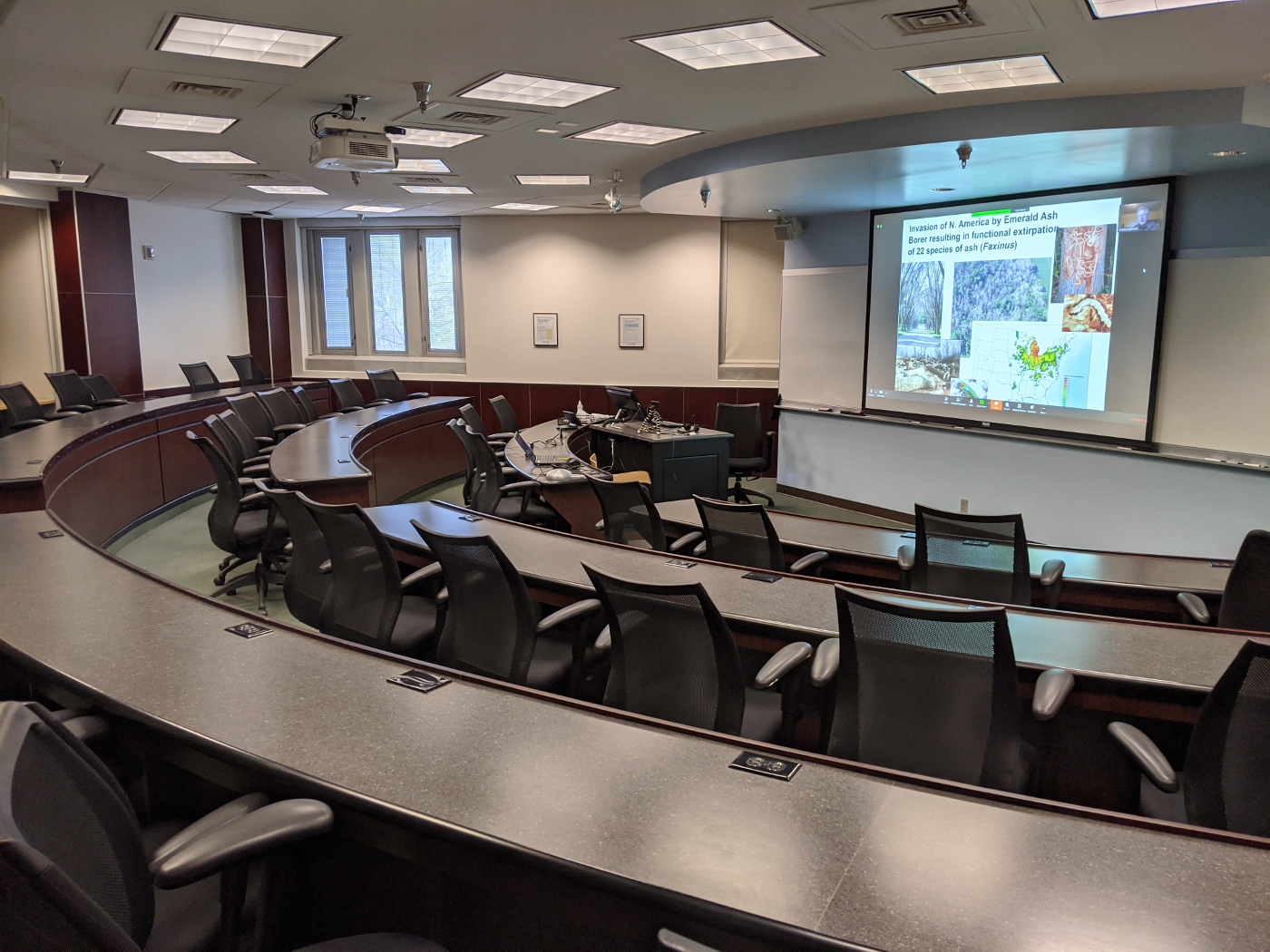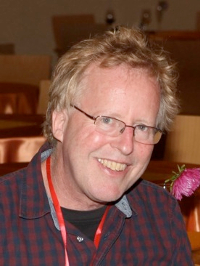NIMBioS/Math Biology Seminar Series
In conjunction with the interdisciplinary activities of the National Institute for Mathematical and Biological Synthesis (NIMBioS), a seminar series on topics in mathematical biology will be hosted at NIMBioS every other Tuesday at 3:30 p.m. EDT (unless otherwise noted) in the Hallam Auditorium, Room 206, Claxton Building, 1122 Volunteer Blvd. Seminar speakers will focus on their research initiatives at the interface of mathematics and many areas of the life sciences. Light refreshments will be served in Room 205 beginning 30 minutes before each talk. Faculty and students from across the UT community are welcome to join us.
Watch seminar online.
This seminar was streamed live and archived for later viewing on NIMBIoS' YouTube channel.Speaker: Dr. Andrew Liebhold, US Forest Service Northern Research Station, Morgantown, WV
Time/Date: Tuesday, March 24, 2020, 3:30 p.m. EDT
Location: Online only
Topic: Socioeconomic drivers of historical global insect invasions
Abstract: Biological invasions are largely an unintended consequence of globalization. With increasing mobility, humans have accidentally transported organisms around the world, breaking the geographical boundaries that separated species ranges that persisted for millions of years of evolution. Among animals, insects are the most species-rich group and thousands of insect species having been established outside of their native ranges. Many of these species have caused immense impacts on agriculture, human health and conservation of native ecosystems.
Here I present a retrospective analysis of historical insect invasions worldwide. I describe how various insect taxa are associated with specific invasion pathways and how both biotic and human demographic characteristics of world regions may facilitate invasions. I also describe how, over time, introductions deplete the supply of "good" invaders in source species pools and how that may be affected by pathway volume. Finally, I discuss how historical developments in both globalization and implementation of phytosanitary regulations have shaped the timing of invasions and present a model for predicting future invasions.
Andrew "Sandy" Liebhold is a research entomologist with the US Forest Service Northern Research Station, Morgantown, WV with research focusing on the spatial dynamics of insect outbreaks and the ecology of biological invasions. Liebhold received his PhD in Entomology from the University of California, Berkeley in 1984 and worked as a postdoctoral at the University of Massachusetts before joining the Forest Service. He is a fellow of the AAAS and serves on the editorial board of Population Ecology and Biological Invasions. He also serves as scientific coordinator with the Faculty of Forestry and Wood Science, Czech University of Life Sciences Prague.
Seminar Flyer: TBA
For more information about this and other NIMBioS Seminars, visit /seminars.

NIMBioS
1122 Volunteer Blvd., Suite 106
University of Tennessee
Knoxville,
TN 37996-3410
PH: (865) 974-9334
FAX: (865) 974-9461
Contact NIMBioS



